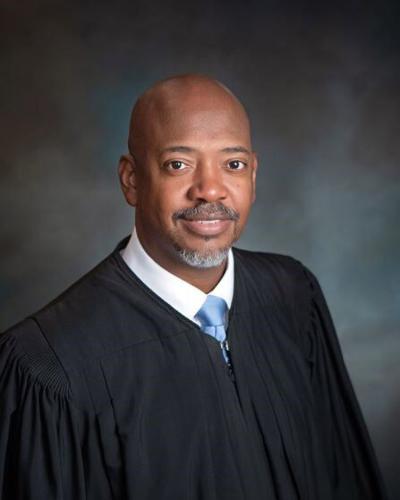A judge in Baton Rouge ruled Friday that new election maps approved last month are illegal and is giving the East Baton Rouge Parish School Board until 8 a.m. Wednesday to come up with new maps — or he will implement a rival set of maps that would likely flip the board’s racial balance to majority-Black.
State District Judge Tarvald Smith's ruling was a win for a handful of residents, led by Baton Rouge attorneys Brian Blackwell and James Bullman, who argued that the maps the School Board adopted are illegal because they split voting precincts when they didn’t have to. It was a novel legal argument that, if it sticks, could lead to court challenges of other election maps in other localities where they resorted to splitting precincts.
In a statement, Blackwell said his clients are "extremely pleased" with the ruling.
“The court’s ruling reaffirms the principle that public bodies are not above the law," Blackwell said. "Public bodies are accountable for their actions and those actions have consequences. Today is a major victory for voters in this parish."
Board President David Tatman responded to the ruling.
"The board has received the decision and respects the opinion of the Court. We are reviewing all options," Tatman said.
Next Wednesday is the deadline set by the Louisiana Secretary of State’s Office for new maps for the Nov. 8 election, when school boards across Louisiana will be up for election. Qualifying for candidates is July 20-22.
If the East Baton Rouge Parish School Board fails to come up with a new map by Wednesday morning, Judge Smith said he will implement the rival Ware/Collins Plan 1-11. That map does not split precincts and was supported by four out of nine board members when it was voted on in early April.
The plan would expand the size of the board from nine to 11 members, with six majority-Black districts and five majority-White districts. By expanding to 11 districts, the Ware/Collins Plan 1-11 would reverse a 2014 redistricting that reduced the size of the board from 11 to nine members.
In his ruling, Judge Smith found that the consideration of and vote on Ware/Collins “is sufficient proof that (the School Board) was able to meet the requirement of using whole precincts in its reapportionment and redistricting.”
Smith issued his ruling Friday afternoon to the attorneys in the case. It wasn’t formally filed in the court record Friday since it was a court holiday. That is set to occur Monday.
The School Board still has time to pick a new map — perhaps one closer to Plan 22, the plan it adopted May 5. Any new map, however, would have to avoid splitting precincts; Plan 22 split a handful of them.
A map closer to Plan 22 would preserve the board's racial balance of five White and four Black members. Plan 22 arguably went further, leading to a possible six White, three Black balance.
The plan retains four majority-Black districts when factoring all residents as well as registered voters. But it has only three majority-Black districts when factoring voting-age population.
The lawsuit centered around a 54-year-old state law that limits the ability of elected officials to split voting precincts when drawing their election maps. While it’s common to split precincts in Louisiana, this law forbids the practice unless the government entity is unable to avoid such splits.
In his ruling, Judge Smith rejected the School Board’s argument that it was inappropriate to consider any plan, like the Ware/Collins plan, that changed the number of board members from nine.
"You can’t gauge the legality of a nine-member plan by comparing it to an 11-member plan," argued School Board attorney Even Alvarez during a five-hour hearing Monday. "They are apples and oranges, your honor."
Mike Hefner, of Duson, the board-hired demographer, buttressed Alvarez's argument by testifying Monday that he didn't think it was possible to avoid splitting precincts if the goal is to stick with nine members. He said that, soon after he was hired last November, he tried and failed to draw a 9-member plan using whole precincts, saying they violated traditional redistricting criteria.
Smith, however, zeroed in on the School Board’s failure to say in advance of a final vote that it wanted to stick with a nine-member board, that it was silent on its preferred size.
“There is no evidence, nor was there any testimony that (the School Board) took any vote or had any discussion as to the number it wished to maintain, reduce or itself in membership,” Smith wrote.
If the board had made clear when it voted that it wanted to stick with nine members before considering maps that would have increased its size, it would have established its intent and “this would have given more weight (to the School Board’s argument) that the board complied” with state law.
Precinct-splitting was largely a non-issue during the contentious debate leading up to the May 5 vote. Most of that debate centered around whether demographic changes in the parish since 2010 should compel the School Board under federal law to create more districts where Black residents and voters are in the majority. The board currently has five White and four Black members.
Opponents have been preparing a separate challenge in federal court that would feature many of the objections that dominated the School Board redistricting debate.
Smith served on the School Board himself from 2004 to 2015. At Monday's hearing, he said that enough time has passed since he served on the board to serve as the judge on this case.




